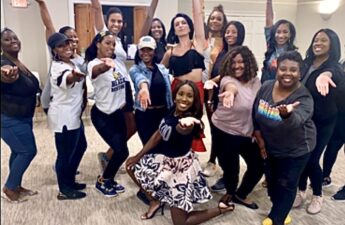By Victoria Lee and Eleanor Shell
Advocacy allows individuals and groups to create change in their community around issues that matter to them. Each of us plays an important role in improving our local communities, influencing policies across our state, and even on the national level. There are multiple ways to engage within our communities and state to influence public policies and engage policymakers on issues.
Since the 1900s, advocacy has played a significant role in shaping policies and increasing resources in our nation and the local community. The impact of advocacy can be seen in our everyday lives – public education, women’s suffrage, civil rights and, more recently, in our community—universal Pre-K are all results of the advocacy of individuals and groups.
Did you know that the Junior League was an instrumental contributor to the Women’s Suffrage Movement?
The Junior League of St. Louis (JLSL) was organized with a mission combining advocacy with service and focused on women and children. For the Democratic National Convention in 1916, the JLSL organized a “walkless, talkless parade” known as the Golden Lane (pictured), where women held yellow parasols and wore white dresses with golden sashes bearing the words “Votes for Women.” As a result of their parade, the DNC voted to include a plank for women’s suffrage. Both political parties formally endorsed women’s suffrage before the end of 1916, thanks to the work of JLSL and other Junior Leagues around the country who joined their movement.
The Junior League of Charlotte (JLC) also has a rich history of advocacy. In 1971, the JLC made its first public advocacy stand, voting to endorse state legislation to support children with emotional needs, House Bills #203 and #204 entitled “Advocacy for Children.” In the early 90s, the JLC first created a permanent committee focused on advocacy and public policy. Recently, the JLC’s advocacy efforts have led to policy changes in our city and state addressing human trafficking, child nutrition and food deserts.
Advocacy builds support for specific causes or policies that we are passionate about seeing changed. As advocates, we can speak, act and write about issues related to social injustices, including school readiness, early education and child development. This helps create awareness and promote solutions that are beneficial to children and families within our communities. Through our ongoing work in the Charlotte-Mecklenburg area, we provide community grants to support local organizations, trainings focused on advocacy and local government, and the unique ability to create awareness of community needs.


